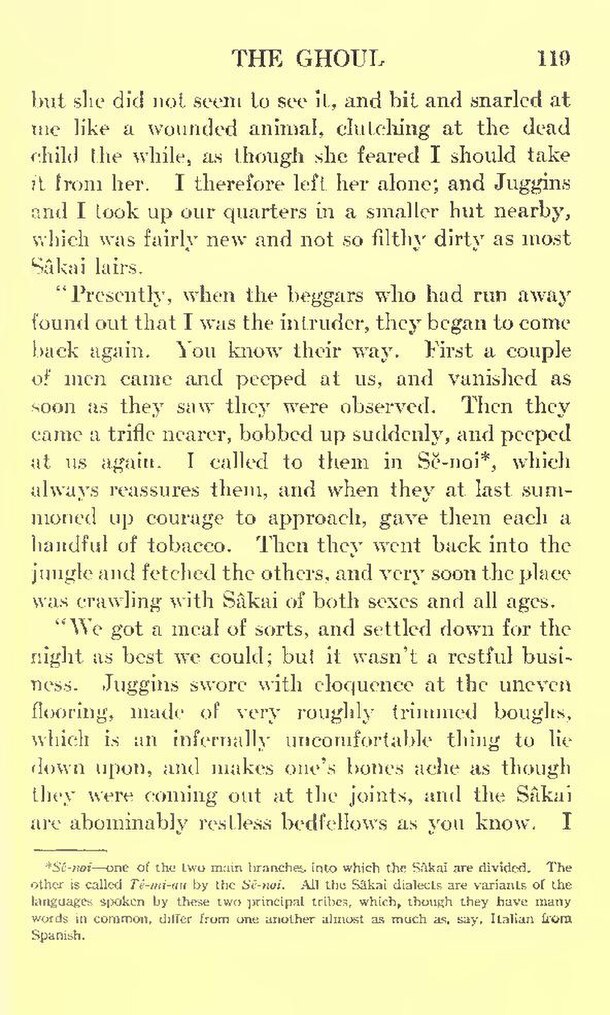but she did not seem to see it, and hit and snarled at me like a wounded animal, clutching at the dead child the while, as though she feared I should take it from her. I therefore left her alone; and Juggins and I took up our quarters in a smaller hut nearby, which was fairly new and not so filthy dirty as most Sâkai lairs.
"Presently, when the beggars who had run away found out that I was the intruder, they began to come back again. You know their way. First a couple of men came and peeped at us, and vanished as soon as they saw they were observed. Then they came a trifle nearer, bobbed up suddenly, and peeped at us again. I called to them in Sĕ-noi[1], which always reassures them, and when they at last summoned up courage to approach, gave them each a handful of tobacco. Then they went back into the jungle and fetched the others, and very soon the place was crawling with Sâkai of both sexes and all ages.
"We got a meal of sorts, and settled down for the night as best we could; but it wasn't a restful business. Juggins swore with eloquence at the uneven flooring, made of very roughly trimmed boughs, which is an infernally uncomfortable thing to lie down upon, and makes one's bones ache as though they were coming out at the joints, and the Sâkai are abominably restless bedfellows as you know. I
- ↑ Sĕ-noi—one of the two main branches into which the Sakai are divided. The other is called Tê-mi-an by the Sĕ-noi. All the Sâkai dialects are variants of the languages spoken by these two principal tribes, which, though they have many words in common, differ from one another almost as much as, say, Italian from Spanish.
